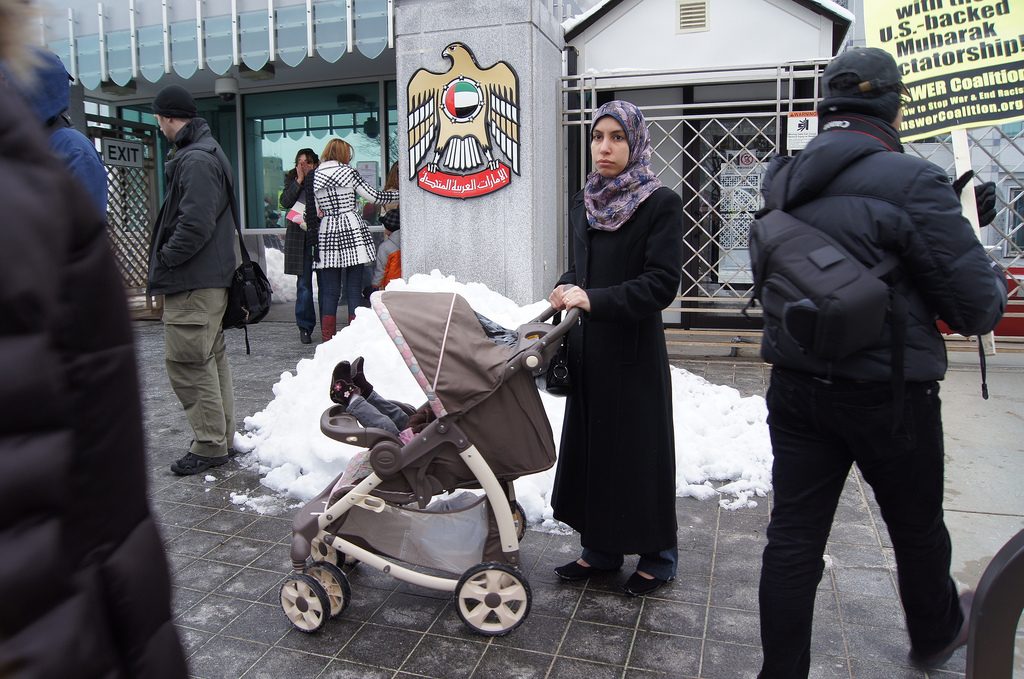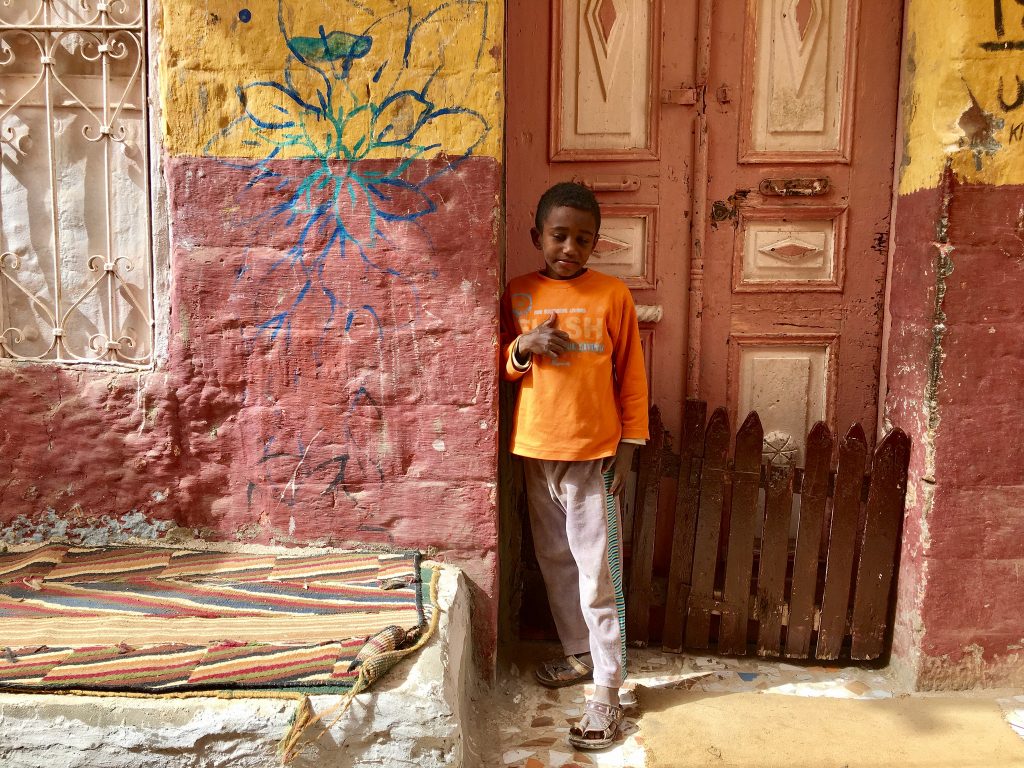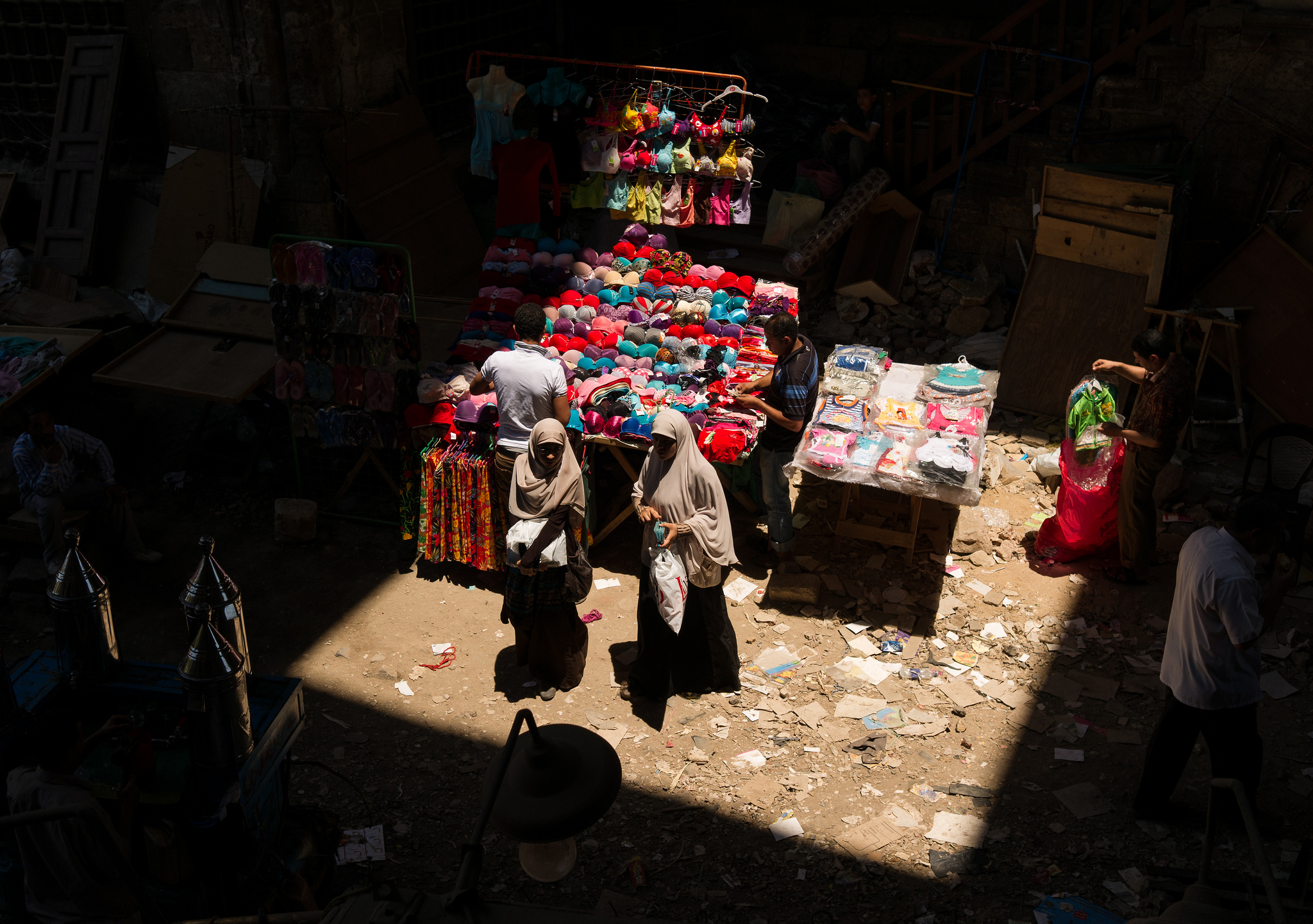Campaigners fear that the Egyptian Governments recommendation to poor families to limit the number of children to two could violate human rights and pose a significant threat to women.
Egypt’s family planning campaign “Two Is Enough” hopes to stunt the rapidly increasing population of 2.6 million each year – especially in the country’s rural areas.
As Egypt nears 100 million people, President Abdel Fattah al-Sisi has said that population is the second biggest threat the country faces after terrorism.
But with often restricted access to birth control and a criminalised stance on abortion, activists say that the policy is difficult to adopt and could have an adverse impact on women.
Will History Repeat Itself?

Credit: Gigi Ibrahim/Flickr
Anytime a government attempts to dictate women’s reproductive choices, it is an abuse of fundamental human rights.
Shena Cavallo, The International Women’s Health Coalition
History has shown us that population control can have an impact on a woman’s right to self-determination, reproductive autonomy and in extreme cases can cause “gendercide”.
China’s one-child policy that was introduced in 1979 led to many families choosing to have boys rather than girls, creating a vastly imbalanced society for future generations and in some cases, women were forcibly sterilised or made to have abortions.
Shena Cavallo, a spokesperson for the International Women’s Health Coalition, explained that women everywhere should have the right to make decisions about “if, when, and how many children they have, and should be empowered with the knowledge and tools to do so”.
Hussein Baoumi, a spokesperson for the Egyptian branch of Amnesty International, added that the campaign would “allow the state to police women on an unprecedented level in Egyptian history”.
What Will The Policy Do?

Credit: Ted Eytan/Flickr
As part of the “Two Is Enough” programme, which targets 1.1 million families, the government hopes to open 70 new clinics which will offer free contraceptives as well as training up a team of volunteers to visit rural homes and encourage them to keep families small.
The United Nations Population Fund estimates that one in three Egyptian women stop using contraceptives within the first year because of misinformation and that 13 per cent of married women wish to use a contraceptive but cannot because of financial limitations or pressure from family.
The programme has also stopped families with more than two children from accessing monetary support to further push mothers into using contraceptives and limiting their offspring, a move that has greatly affected the financial stability of families who already relied on the income to survive.
Baoumi told RightsInfo that limiting this cash flow will cause the greatest harm to women because they have less access to education and employment, and so cannot support themselves as easily.
This would allow the state to police women on an unprecedented level in Egyptian history.
Hussein Baoumi, Amnesty International
What Are The Problems With The Policy?

Credit: Gigi Ibrahim/Flickr
Cavallo explained that the “Two Is Enough” campaign’s focus on population growth ignores the consequences of policing women’s bodies.
“Anytime a government attempts to dictate women’s reproductive choices, it is an abuse of fundamental human rights.
“When women have access to comprehensive sexuality information and services, they can be trusted to make the best decision for themselves and their families,” Cavallo told RightsInfo.
Women everywhere have the right to make decisions about if, when, and how many children they have, and should be empowered with the knowledge and tools to do so.
Shena Cavallo, The International Women’s Health Coalition
Baoumi added that the policy would be likely to negatively impact women’s health, financial wellbeing and autonomy.
“The state has no business regulating how many children women have. Given the restrictions over abortions, it could have not only a devastating financial effect on women and poorer families but also an adverse impact on female reproductive health.
“In light of current controls on abortion, it is possible that such a policy would drive women to conduct unsafe abortions, potentially risking their lives,” he said.
Have Child Policies Ever Worked?

Credit: catan2011/Flickr
Such a policy would drive women to conduct unsafe abortions, potentially risking their lives.
Hussein Baoumi, Amnesty International
This isn’t the first time Egypt has launched family planning programmes, but this time around the country is largely self-funding the programme.
Between 1976 and 2008 the fertility rate fell from 5.6 children per woman 3, with a US-sponsored programme that saw contraceptive use rise from 18.8 per cent to 60.3 per cent. After the US stopped funding the programme, fertility rates began to rise once again and currently sit at 3.4 babies per mother.
The US will provide $19 million for the “Two Is Enough” programme, a fraction of the $371 million spent during the last programme.
Activists believe that the campaign is too heavily focused on the supposed financial benefits, but ministers insist that if the population continues to grow at the same rate then it will have a direct impact on their economic reform.
“We are faced with scarcity in water resources, scarcity in jobs and job creation. We need to really control this population growth so that people can feel the benefits of development,” Minister of Social Solidarity Ghada Wali told Reuters.
A Better Solution?
Baoumi explained that a better way to help reduce population growth while also upholding women’s rights is to provide access to free, safe and legal contraception and abortions.
“The state should instead legalize abortion for women and ensure that women have access to contraception as well as safe and affordable abortion services,” he said.







